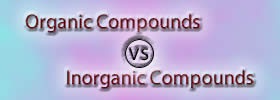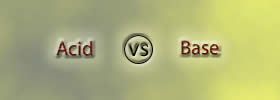Chemistry
Organic vs Inorganic Compounds
|
The commonly accepted guideline is that organic compounds are generally compounds that nearly always contain carbon-hydrogen bonds, while everything else that does not is classified as inorganic compounds.... |
Glucose vs Galactose
|
The term “glucose” is derived from the Greek, “glukus”, meaning “sweet”. Glucose is also known as D-glucose, dextrose, or grape sugar is found in plants and it is a byproduct of photosynthesis and fuels for... |
Glucose vs Fructose
|
The term “glucose” is derived from the Greek, “glukus”, meaning “sweet”. Glucose is also known as D-glucose, dextrose, or grape sugar is found in plants and it is a byproduct of photosynthesis and fuels for... |
Empirical vs Molecular Formula
|
Empirical formula of a chemical compound shows the simplest positive integer ratio of atoms of each element present in a compound. Molecular formula of a compound, also known as chemical formula, is a way of... |
Acid vs Base
|
Acids and bases are two types of corrosive substances. Any substance with a pH value between 0 up to 7 is considered acidic, whereas a pH value of 7 to 14 is a base. Acids are ionic compounds that break apart... |













